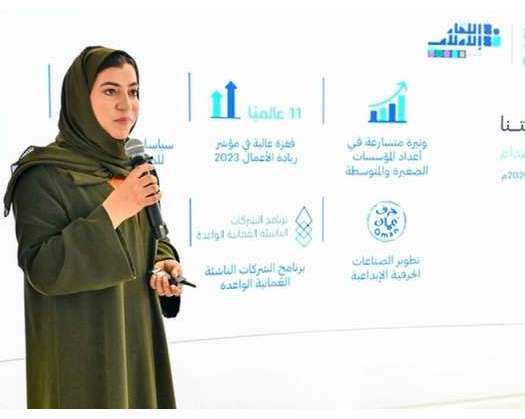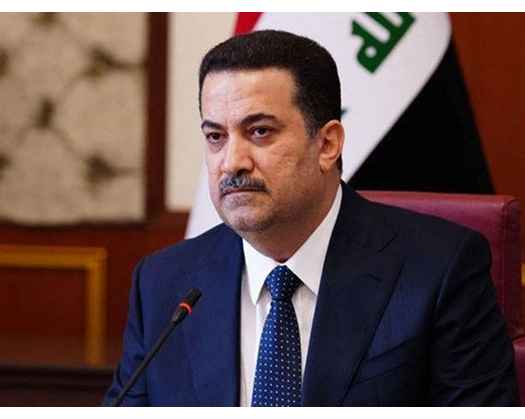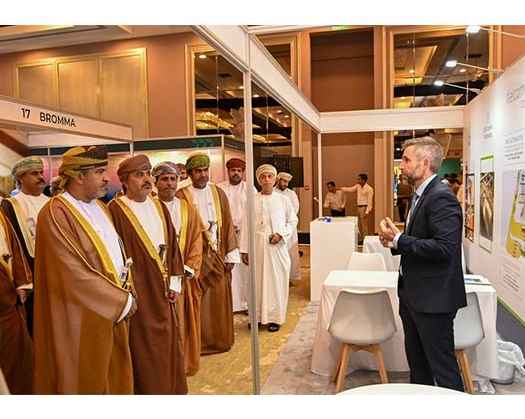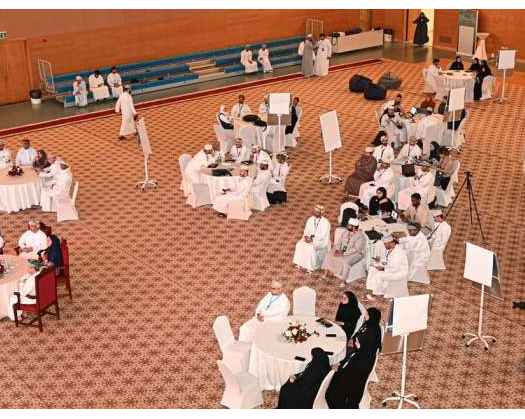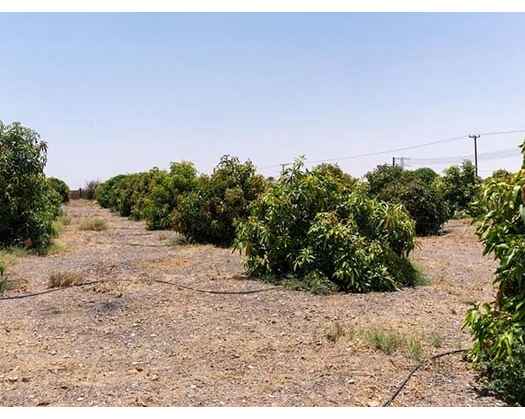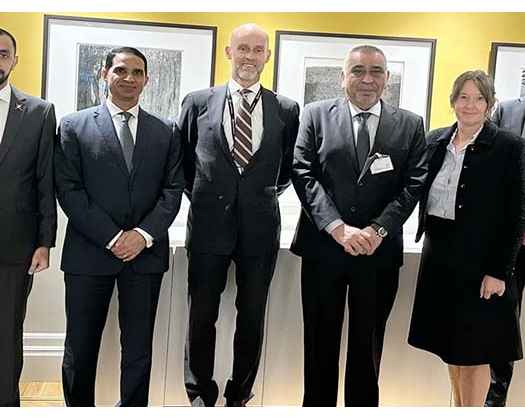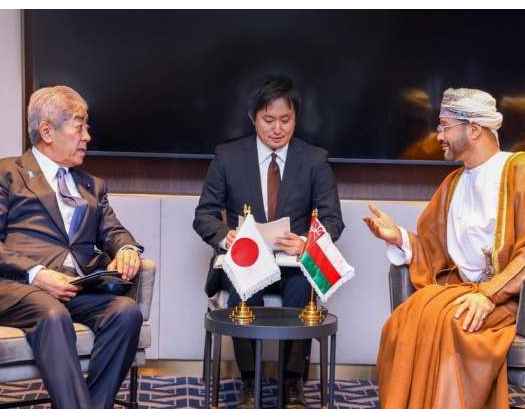Muscat: On Sunday, the Authority for Small and Medium Enterprises Development (ASMED) convened a press conference to explore strategies for enhancing support for small and medium enterprises (SMEs). The meeting also highlighted ASMED's achievements in 2024 and outlined key elements of its 2025 plan.
This media event was part of ASMED’s commitment to fostering transparency and improving communication with the community.
During the session, Halima Rashid Al Zar’ai, Chairperson of ASMED, emphasized the organization's dedication to empowering SMEs, startups, entrepreneurs, and artisans.
She noted that ASMED aims to elevate the role of all stakeholders in promoting sustainable development through collaboration with key entities, including the Development Bank, Oman Investment Authority (OIA)—represented by the “Oman Future Fund”—and the Financial Services Authority (FSA), which oversees alternative financing platforms. This cohesive framework is designed to facilitate funding through both traditional lending and alternative financing options.
Al Zar’ai further explained that ASMED has introduced a series of incentives to motivate project owners to continue innovating and expanding. These incentives align with the strategic vision of the Sultanate of Oman to strengthen the SME sector and empower young entrepreneurs to develop innovative concepts into successful ventures that contribute to economic diversification and entrepreneurship as foundational elements of a prosperous future.
Abdullah Ali Al Sunaidi, the Director of the Development and Empowerment Department at ASMED, reported that the national workforce within the SME sector reached 192,714. He noted that in the latter half of 2024, a total of 64,436 SMEs received the Entrepreneurship Card.
He elaborated on ASMED's initiatives designed to support SME owners, which include reserving at least 10 percent of government contracts and purchases for SMEs, as well as exempting them from the requirement to provide temporary insurance (1 percent) when submitting bids for tenders.
Additionally, SMEs that have obtained entrepreneurship cards are exempt from registration and classification fees at the Secretariat General of the Tender Board, and the registration fees for small and medium enterprises have been reduced by 50 percent, he mentioned.
Al Sunaidi also highlighted that 5,222 individuals participated in the Entrepreneur Readiness Programme in 2024. This programme offers comprehensive and specialized training aimed at enhancing the skills of entrepreneurs, enabling them to adapt to the fast-evolving entrepreneurship landscape, particularly by improving their technical and technological capabilities to ensure the sustainability of their ventures.
In this regard, he stated that by the end of the fourth quarter of 2024, there were 209 specialized and general training programmes, benefiting a total of 28,853 entrepreneurs. This included 3,203 beneficiaries receiving general consulting services, 4,653 beneficiaries involved in economic feasibility studies, and 229 entrepreneurs participating in the guidance programme.
Throughout 2024, 123 small enterprises transitioned into medium enterprises, while 5 medium enterprises advanced to the status of large enterprises.
He noted that ASMED has created pathways for enterprises to qualify through a rigorous specialized program that has supported the development of suppliers for 3,844 businesses. Additionally, the Authority facilitated business opportunities for 2,071 enterprises and 70 operational factories, in collaboration with the Public Authority for Industrial Estates (Madayn), along with 60 factories located in Al Rusayl Industrial Estate and 10 in Nizwa Industrial Estate.
Qais Rashid Al Tobi, ASMED Deputy Chairman for Finance and Investment, stated that ASMED aims to finance at least 300 enterprises across various economic sectors by 2025. He mentioned that the “Azm” lending portfolio had approved 400 financing applications by the end of September 2024, amounting to over RO 37.6 million.
Furthermore, he indicated that ASMED, in partnership with the Development Bank, has initiated 9 financing programs designed to provide financial support to entrepreneurs, enabling them to expand their ventures both locally and internationally. This initiative also seeks to motivate entrepreneurs and job seekers to take advantage of the favorable business climate.
Al Tobi highlighted that ASMED's initiatives have elevated the Sultanate of Oman to the 11th position in the Entrepreneurship Index among 49 countries, as reported by the Global Entrepreneurship Monitor for 2023.
He also pointed out that Oman ranks among the top 15 nations for the rapid development and growth of startups and is within the top 10 for attracting talent, according to the Startup Genome Report for the Middle East and North Africa for 2023. “These metrics reflect the effectiveness of our business environment in drawing in innovators and investors,” he concluded.

